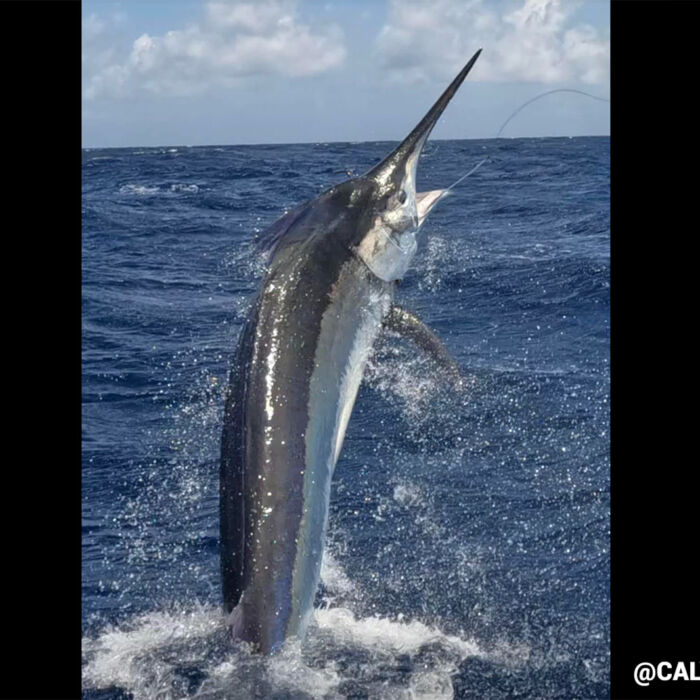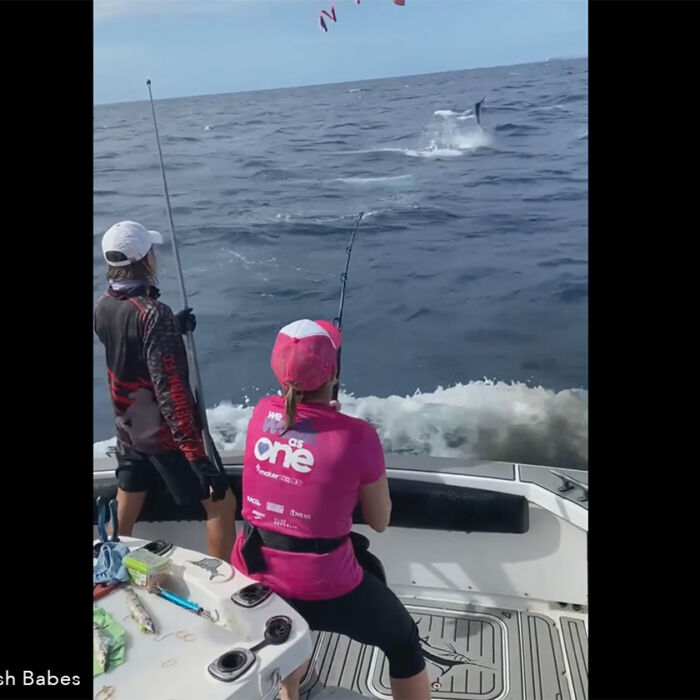With the election coming up in less than 9 days, Australians fishos everywhere are getting nervous. This election is far too important for us to take lightly and so I asked industry stalwart Capt. Tim Dean to break down the issues for me. He kindly took the time to answer my questions. If you fish and you vote, I encourage you to give this your utmost consideration come election day.
Kelly: What are the basics of the policies/stance of the major parties (Labour and Liberal/National Coalition) as well as the Greens Party as they relate to recreational fishing in Australia?
T.D.: The major policy which will affect us is the further implementation of the National Marine Representative System which will take a minimum of 30% of all bio-regions around Australia as no-fishing zones. This is what the Greens want by 2012. Labor (ALP) votes for the Senate go to the Greens, so I guess you can say the policies of the ALP will be dictated by the Greens. The Coalition (LNP) however promises an immediate halt on the process, and to take it back to the consultation stages with industry and stakeholders. The Coalition policy also recognises the value of fishing communities and fishermen as a whole.
Kelly: How does this relate to our marlin fisheries, in particular the Great Barrier Reef (GBR) and Coral Sea?
T.D.: For example, the East Marine Bioregion (EMB) starts at Cape York in Far North Queensland and goes all the way down the coast to Bermagui on the far South Coast of New South Wales. The EMB also takes in the area around Lord Howe Island and totals just over 2.4 million square kilometres. IF you take 30% of this area as a NO-FISHING zone it would basically be an area the size the entire state of NSW!
Its pretty easy to see how this will affect fishing on the east coast, let alone the pressure this will put on open fishing areas not included in the no-fishing area! Displaced effort would be huge and coastal towns will be affected financially. As for the Coral Sea, the Greens are pushing for the whole of the Coral Sea to be closed!
Kelly: The Greens want to increase marine park closures to 30%….isn’t 30% of the GBR already protected?
T.D.: The bio-regional planning process does not take into account the Great Barrier Reef Marine Park (GBRMP) as it is already zoned, with over 30% already locked up from fishermen. The GBRMP re-zoning should be taking place this year sometime with no immediate changes likely. They have a much bigger fish to fry (the entire Australian coastline in fact!)
Kelly: But I thought our fisheries were already ‘managed’? Are these closures on top of the closures already in existence?
T.D.: Good question Kel. Yes is the simple answer. We currently have world best practice laws and regulation in regards to our marine resources and environment. Bag limits, size limits, pollution controls let alone mention our own codes of conducts and self management when it comes to gamefishing tournaments and competitions. The goals and principals of the bio-regional planning state the introduction of the new marine reserves should “further enhance the existing protection” meaning, yes the new parks “should” be adjacent to existing state based marine parks! ie: Port Stephens Great Lakes Marine Park Area!!!!!
Kelly: Is there any factual truth to the comment from Bob Brown that we have severely overfished species such as marlin (and tuna, etc)? What is the science here?
T.D.: No, we are waiting for him to divulge his sources. Basically he has no credible scientific proof. Unless you announce disasters, no one will listen!
Kelly: Are the the current closures achieving the desired effect? (ie. do closures work?)
T.D.: Dr. Walter Starck says “At present, no need for or benefit from, extensive MPAs has been shown to exist and it would be prudent to await the accumulation of further knowledge to implement them over time in accord with increasing knowledge. Current scientific understanding is simply not adequate for a soundly based large scale implementation of MPAs at this time. The crash program of MPA implementation amounts to large scale environmental meddling with no proper assessment of either needs or consequences. It is simply cheap pandering for green votes.”
Kelly: Why does my vote count so much? Why is my vote so important?
T.D.: Basically the Greens are in line to hold the balance of power in the Senate and with the preference deal between the ALP and the Greens already in place the only way one can secure our futures in fishing and the outdoors is to vote for the Coalition.
—–
Information from Kelly:
VOTING ON ELECTION DAY
Like many Australian’s, I’m not terribly familiar with how the voting system works and so I’ve done a little research that I hope will clarify how this relates to the actual process of voting on election day for you, as it has for me.
In Australian Federal elections we vote:
1. For your local member for the House Of Representatives (Green Ballot). The Prime Minister of Australia is the head of the House of Representatives/Lower House in the Australian Parliament.
2. For the Senate (White Ballot). This ballot paper is split into two parts by a solid line – above the line will be a box for each party or group and below the line are boxes for every candidate, grouped by party.
If you choose to vote above the line: Vote for a political party or group by putting the number ‘1’ in one box only above the black line. In Queensland, as an alternative to the Coalition (Liberal or National Party), you can instead vote for the Australian Fishing & Lifestyle Party and also be confident your preferences will not be going to the Labour Party or the Greens. In Queensland the Australian Fishing & Lifestyle Party has two candidates running for the Australian Senate – Dr. Mike Mansfield and Mr. Keith Douglas.
If you choose to vote below the line: You must complete every box in numerical order in order to assure your preferences are allocated the way that you see fit. If you miss a box or if you mess up your numbering sequence then your vote becomes invalid and won’t be counted.
Believe it or not, but you can ‘practice’ voting here (its pretty basic) –> http://www.aec.gov.au/Voting/How_to_vote/voting_practice.htm
—–
Please note that comments are closed on this post. The Black Marlin Fishing Blog is a way of expressing the voice of our industry.





